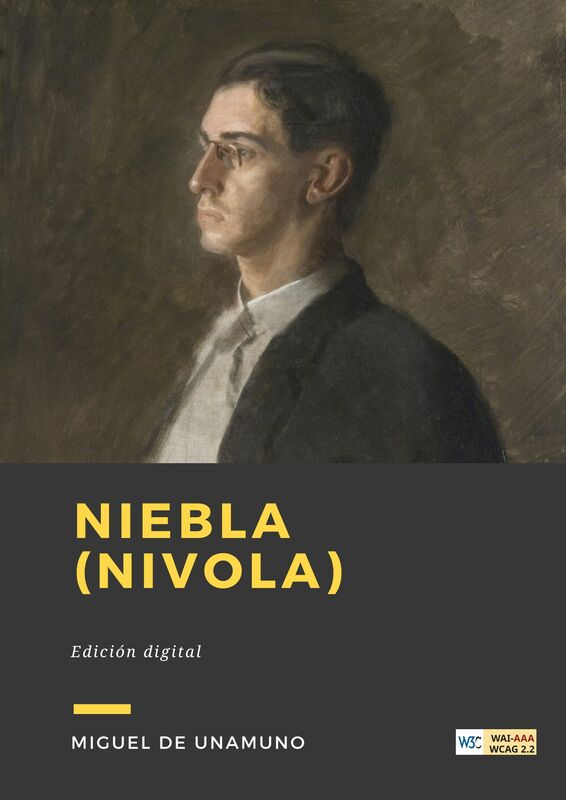
Niebla (Nivola)
Miguel de Unamuno
Niebla (Nivola)
Miguel de Unamuno
Miguel de Unamuno's Niebla (Mist) represents a revolutionary achievement in Spanish literature, introducing the concept of the 'nivola'—Unamuno's innovative narrative form that challenges traditional novelistic conventions. The story follows Augusto Pérez, a wealthy bachelor whose predictable life is disrupted when he falls in love with Eugenia, a piano teacher. However, the true innovation of the work lies in its metafictional elements, particularly the famous scene where Augusto confronts his creator, Unamuno himself, questioning the nature of his existence and the boundaries between fiction and reality. Through this groundbreaking narrative technique, Unamuno explores profound existential and philosophical questions about free will, identity, and the meaning of existence. The work reflects the author's deep engagement with existentialist philosophy and his concern with the spiritual crisis of modern humanity. Niebla's experimental approach to storytelling and its philosophical depth make it a crucial work in the development of modern Spanish literature and a significant contribution to existentialist thought in fiction.
A propos de l'auteur
Miguel de Unamuno (1864-1936), escritor y filósofo español, fue una figura central de la Generación del 98. Su novela 'Niebla' es una obra innovadora que explora temas existenciales y metacríticos.